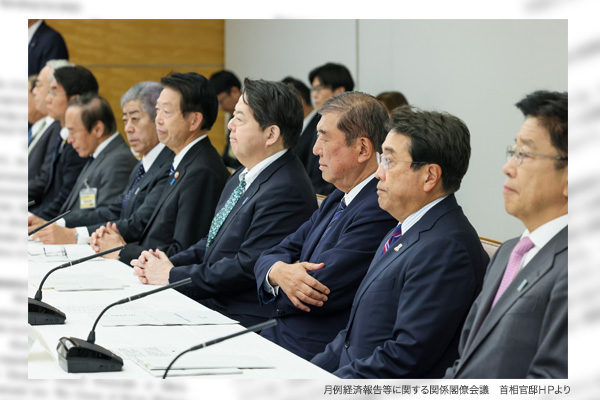The ruling coalition’s crushing defeat in the October 27 House of Representatives election provided an opportunity to encourage the correction of Japan’s fiscal policy biased toward temporary lavish spending. This is because Prime Minister Shigeru Ishiba and his ruling Liberal Democratic Party is now in danger of losing the reins of government without winning over the Democratic Party for the People, which garnered support from young working voters in the election by advocating income and other tax cuts.
Austere fiscal policy supporters resisting raising an annual income barrier
Tax cut opponents, including senior LDP lawmakers, economists, and some media organizations that are close to the austere Ministry of Finance, uniformly cite financial difficulties and government debt to argue that burgeoning debt should not be passed on to future generations. On the most important proposal by DPP leader Yuichiro Tamaki at his talks with the ruling coalition to raise an annual income barrier beyond which income tax is imposed from 1.03 million yen to 1.78 million yen, Chief Cabinet Secretary Yoshimasa Hayashi warned that a tax revenue decrease of 7 trillion to 8 trillion yen would result from the proposal. A Nikkei Shimbun newspaper editorial on November 3 cited a government-estimated 7.6 trillion yen decline in tax revenue, arguing that prudent discussions are required on the proposal.
These arguments consider finance in terms of simple subtraction, ignoring an economic dynamism in which an increase in the income tax deduction will revitalize workers who have previously kept their annual income within 1.03 million yen, will alleviate labor shortages, and will make household finances easier.
In the United States, both the federal government and congress primarily propose income tax cuts as an economic stimulus. In contrast, Japan, plagued with chronic deflation since the second half of the 1990s, the government and ruling parties have made no attempt to implement full-fledged tax cuts to support a sustainable expansion in household consumption. The MOF feared that any tax cut would become permanent, leading the LDP Research Commission on the Tax System to oppose tax cuts. The government has had no choice but to come up with temporary lavish spending. This is because there is little resistance from the MOF bureaucracy to a temporary increase in spending.
Annually, the Japanese government forms an initial budget featuring tax increases and spending cuts, dampens domestic demand, and comes up with a large-scale supplementary budget. As soon as supplementary spending comes to a lull, it loses effectiveness and domestic demand slumps again, making deflation even more serious. Temporary lavish spending ends up watering in the desert and expands government debt while failing to induce stable economic growth.
Young working generation rejects lavish spending
Media exit polls showed that young voters in their 20s and 30s voted most for the DPP in the proportional representation constituencies for the House of Representatives election. They supported the DPP that advocated tax and social insurance premium cuts and disposable income expansion for the working generation, rather than the ruling LDP that cooperated with its junior coalition partner, the Komeito party, that called for a 100,000-yen cash handout for low-income people. The working generation, which is raising children and supporting the elderly generation, has chosen a tax cut-oriented fiscal policy as an alternative to doomed lavish spending.
Hideo Tamura is a Planning Committee member at the Japan Institute for National Fundamentals and a columnist for the Sankei Shimbun newspaper.


